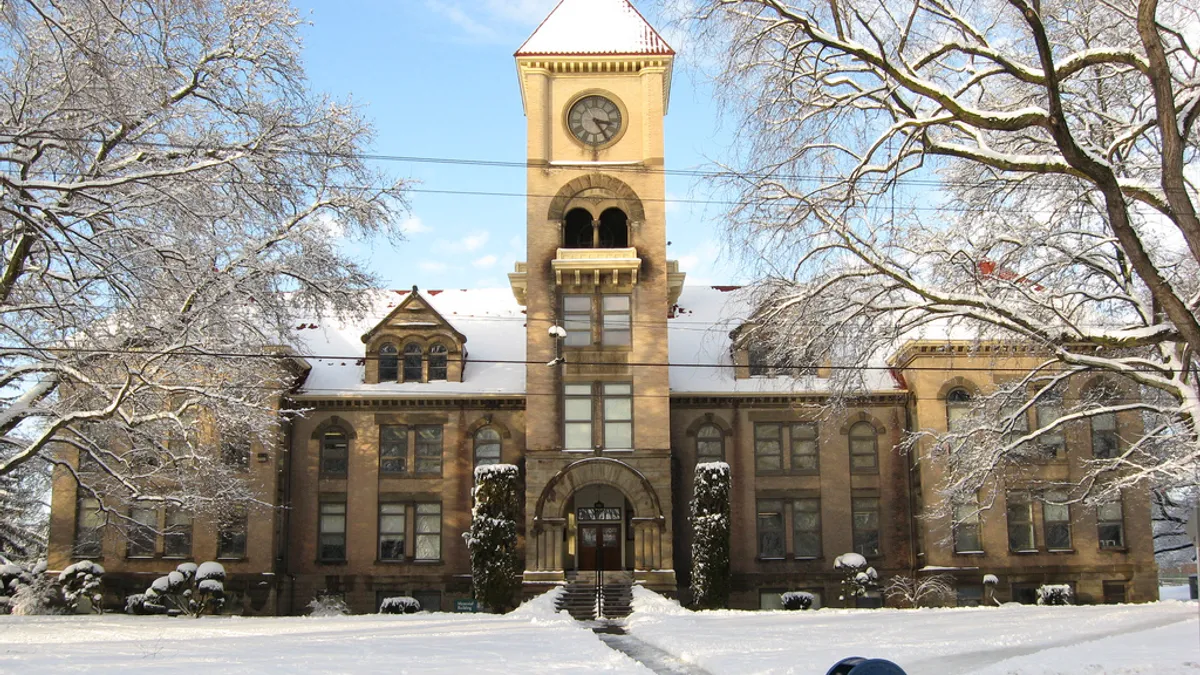Dive Brief:
- Whitman College will start providing aid to fulfill the full demonstrated financial need of students from Washington state, where the private institution is located, beginning in fall 2023.
- The liberal arts college said it will initially open a new scholarship meeting full need to first-year students. The scholarship, which was funded through a $10 million donation, will eventually expand to all four undergraduate classes.
- Eventually, this will benefit an estimated 500 students, or about one-third of the college's student body, it said.
Dive Insight:
Whitman’s move follows steps by other wealthy institutions to bolster financial aid for certain students, often those from low-income backgrounds.
Williams College, one of the U.S.’s top-ranked liberal arts schools, last month said it will eliminate loans and work requirements from financial aid packages entirely, crediting itself as the first institution in the country to do so.
And Washington University in St. Louis said last year it would capitalize on its swelling endowment to admit all first-time full-time domestic undergraduates on a need-blind basis. This policy means a college will decide whether to admit students regardless of how much financial aid they require.
Need-blind admissions and meeting students’ full financial need can be expensive propositions. Colleges that adopt these policies may have a trickier time controlling their financial aid budgets, although tools such as waitlists, early admissions and preferences for relatives of donors or alumni can still be used to build classes that meet budget goals.
Demonstrated financial need has historically been calculated by subtracting a student’s expected family contribution — a federally defined number that takes family wealth and income into account — from a college's cost of attendance.
Whitman is in a strong financial position, according to its latest financial statements. Its endowment grew to $813 million last year from $561 million in 2020.
Whitman had the 160th-largest endowment in the U.S. and Canada last year, according to an annual study from TIAA and the National Association of College and University Business Officers.
The college noted it weathered financial stresses from the coronavirus pandemic relatively well, bringing down operating expenses by more than $14 million and taking advantage of nearly $4 million in federal COVID-19 relief dollars.
The new scholarship, however, was created through a $10 million gift from the family of a longtime faculty member, The Seattle Times reported.
“Whitman has long been one of the most generous colleges when it comes to financial aid,” Adam Miller, interim vice president for admission and financial Aid, said in a statement. “Now this new gift will eliminate any remaining barriers to make a Whitman education within reach for Washington state students.”
Efforts to boost college affordability aren't only confined to the wealthy, private nonprofit sector. The free college movement has scored wins at state and local levels including a New Mexico program approved earlier this year to largely make public tuition free to any state resident without a degree. And Northern Arizona University last week announced a tuition-free initiative for state residents from households earning $65,000 or less, starting in fall 2023.















